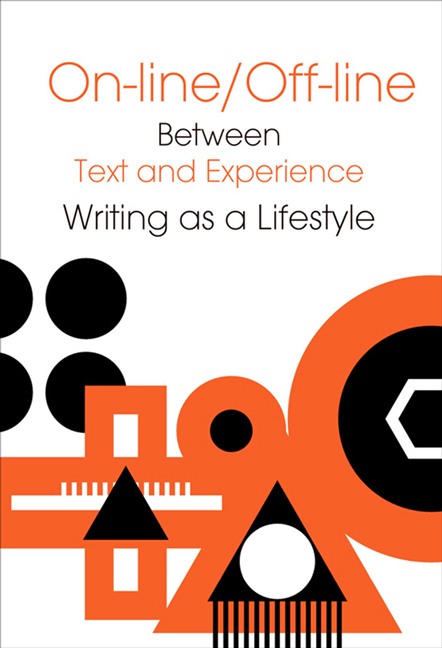Book contents
- Frontmatter
- Contents
- Editors’ Introduction
- ON-LINE/ OFF-LINE
- LITERATURE AND CONVERGENCE
- Poetics in the Age of Convergence
- Convergence and Communication: Genre Analysis of the websites of Polish Writers
- Towards a Generic Analysis of the Microblog (Based on a Study of Twitter)
- How Does the Hybrid Work of Art Exist?
- Liberature in Relation to the Reconfiguration of Aisthesis
- Literature in/of the City – Introductory Comments
- Literary Studies, History and Popular Culture – the Spaces of Convergence
- Afterpop: the Almost Perfect Convergence
- Transcultural Convergence? Polish Poets and Artists and the Oriental Verbo-visuality
- From an E-narrative Poem towards an Interactive Work of Art. Media Convergence Illustrated with DOWN by Zenon Fajfer and The Surprising Spiral by Ken Feingold
Transcultural Convergence? Polish Poets and Artists and the Oriental Verbo-visuality
from LITERATURE AND CONVERGENCE
Published online by Cambridge University Press: 12 January 2018
- Frontmatter
- Contents
- Editors’ Introduction
- ON-LINE/ OFF-LINE
- LITERATURE AND CONVERGENCE
- Poetics in the Age of Convergence
- Convergence and Communication: Genre Analysis of the websites of Polish Writers
- Towards a Generic Analysis of the Microblog (Based on a Study of Twitter)
- How Does the Hybrid Work of Art Exist?
- Liberature in Relation to the Reconfiguration of Aisthesis
- Literature in/of the City – Introductory Comments
- Literary Studies, History and Popular Culture – the Spaces of Convergence
- Afterpop: the Almost Perfect Convergence
- Transcultural Convergence? Polish Poets and Artists and the Oriental Verbo-visuality
- From an E-narrative Poem towards an Interactive Work of Art. Media Convergence Illustrated with DOWN by Zenon Fajfer and The Surprising Spiral by Ken Feingold
Summary
Abstract
The article concerns different aspects of convergence processes of the traditional Oriental genres in the Polish culture, focusing on haiku, haiga and haibun. It examines artists’ books, visual arts and the artistic websites. The theoretical frame of the research is rooted in the concept of transculturality introduced by Wolfgang Welsch.
The author analyses Polish works of art employing different strategies of combining words and images, thereby showing unexpected similarities between cultures and reveal-ing the artistic changes caused by the choice of different media. The investigation proves that the most interesting compositions uncover unexpected common elements between apparently contradictory traditions, the necessary condition is, however, at least the basic knowledge about the Other.
Key words: verbo-visuality, transculturality, convergence, haiku, haiga, haibun
The paper focuses on the concept of transculturality introduced by Wolf-gang Welsch (cf.Welsch 1998, Welsch 2004), adapting it to the analyses of different fields of convergence in contemporary Polish culture: employing and transforming old Oriental genres into more hybrid forms appearing on the Internet, becoming parts of artistic exhibitions or being incorporat-ed into artists’ books. It is a convergence of a special kind – “transplant-ing” the genres into the new medial ground must have been preceded by their basic assimilation in the new culture.
The term ‘convergence’ is used to describe different technological, in-dustrial, social and cultural processes (Jenkins 2007: 9, Jakubowicz 2011: 27).
All of them prove important in the analyses concerning the “transplan-tation” of the foreign literary and artistic genres, which seem utterly in-congruent with the Polish tradition. In the paper, however, I concentrate only on the cultural dimensions of the problem, believing they define an interesting field of research for comparative cultural studies. As Jenkins claims, convergence is not just a matter of sophisticated media devices but a process occurring in human minds and human communication (cf. Jen-kins 2007: 9).
I am interested mainly in three genres: haiku, haiga and haibun.The common basis of the three is haiku: a poetic genre strongly related to vi-sual arts (calligraphy, similarities of imagery in haiku and sumi-e, nanga, ukiyo-e, shared aesthetic and ethical beliefs of haijins and Zen painters – cf. Addiss 2005, Śniecikowska 2007: 243–251).
- Type
- Chapter
- Information
- On-line/Off-lineBetween Text and Experience: Writing as a Lifestyle, pp. 339 - 370Publisher: Jagiellonian University PressPrint publication year: 2016



